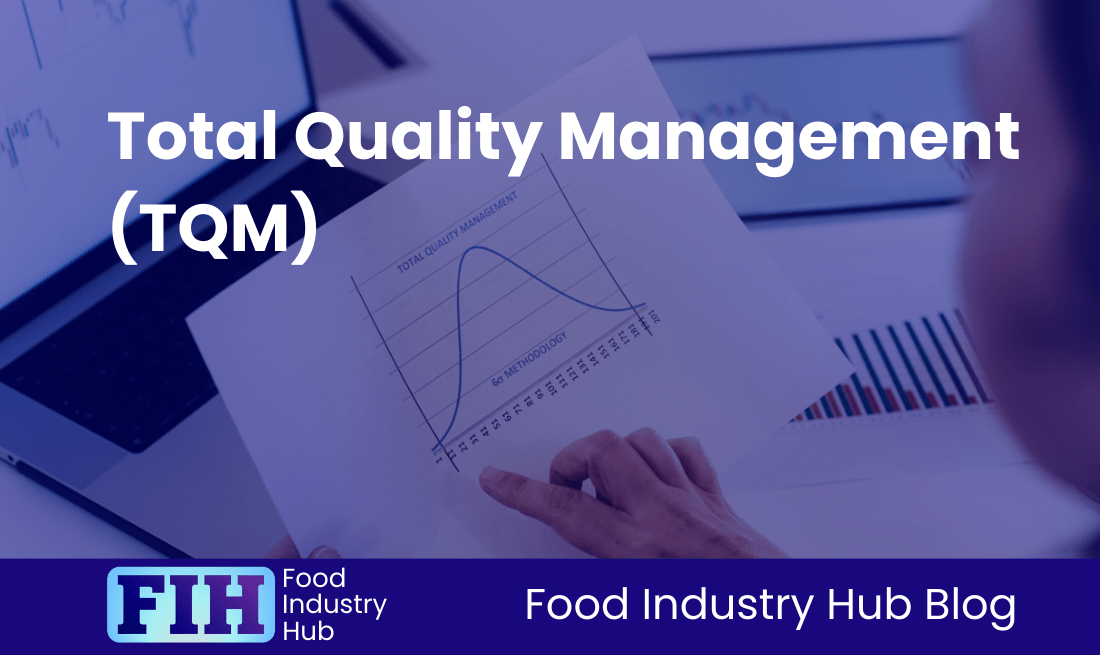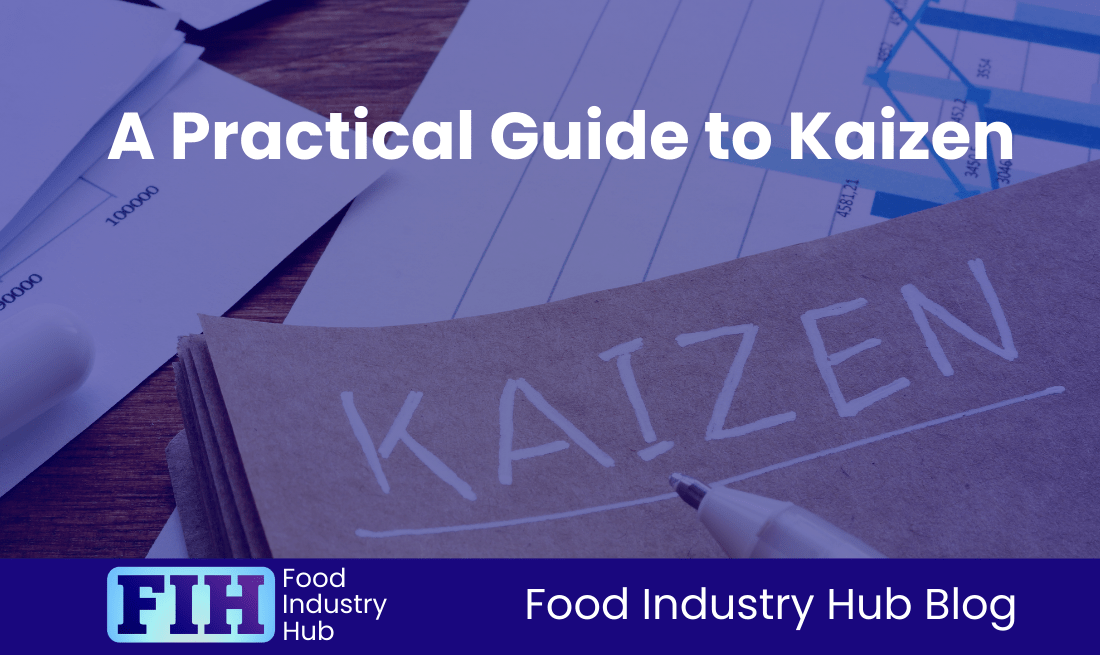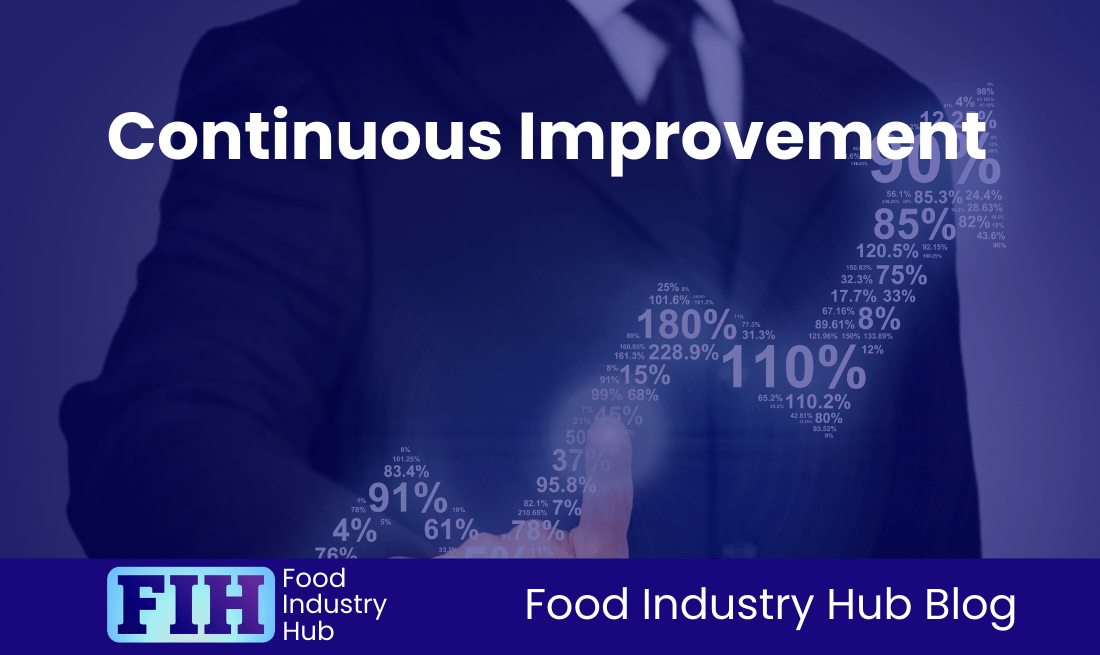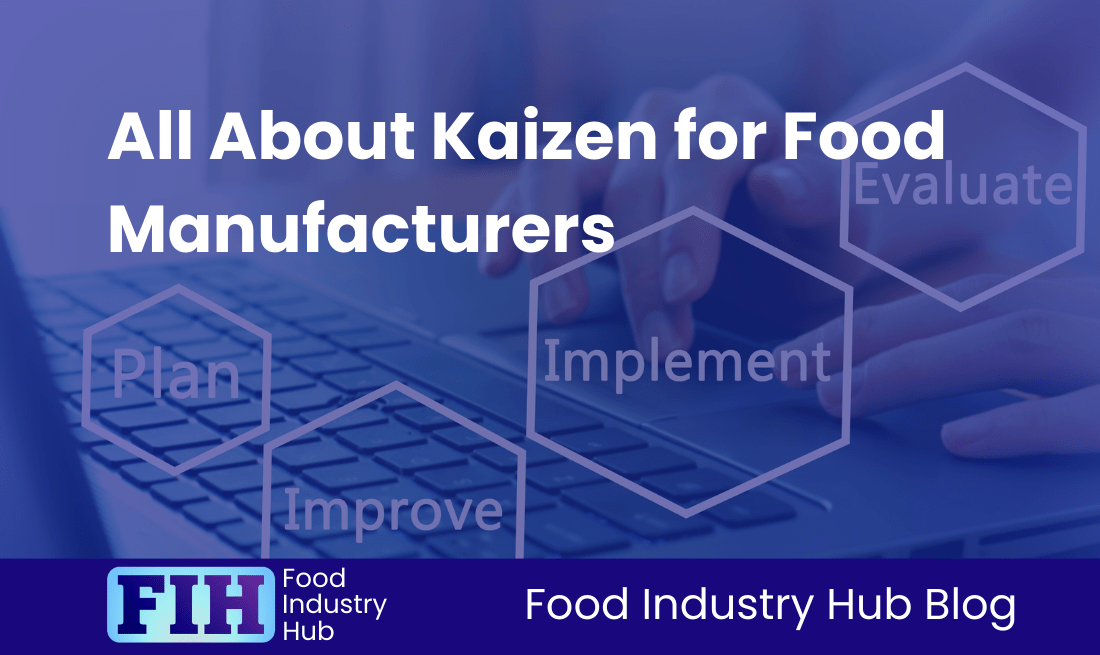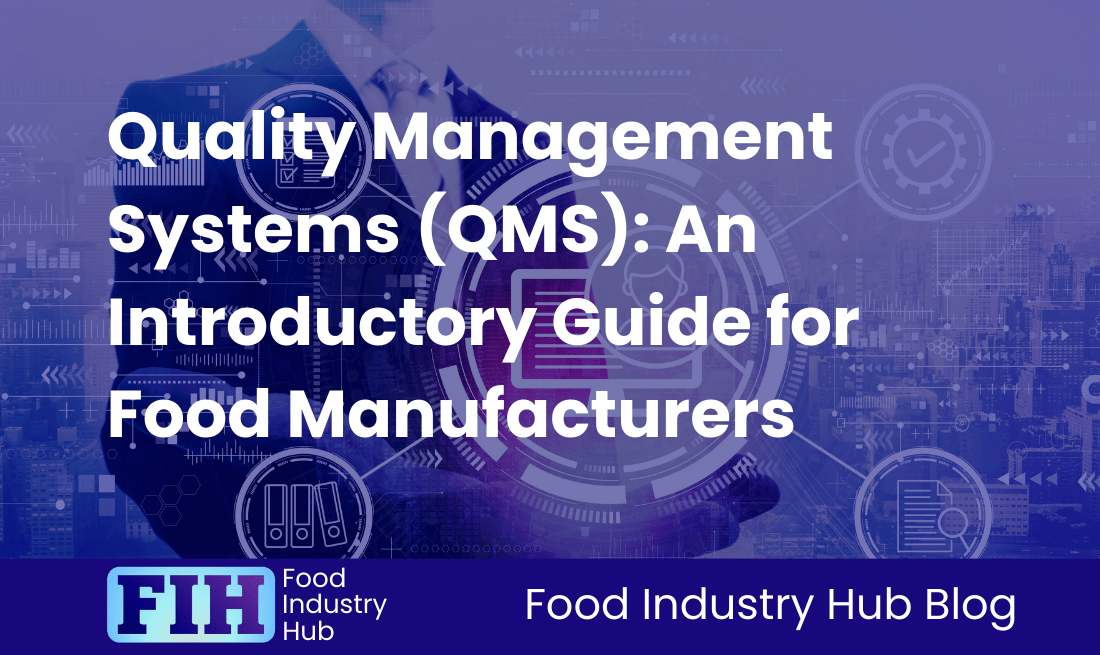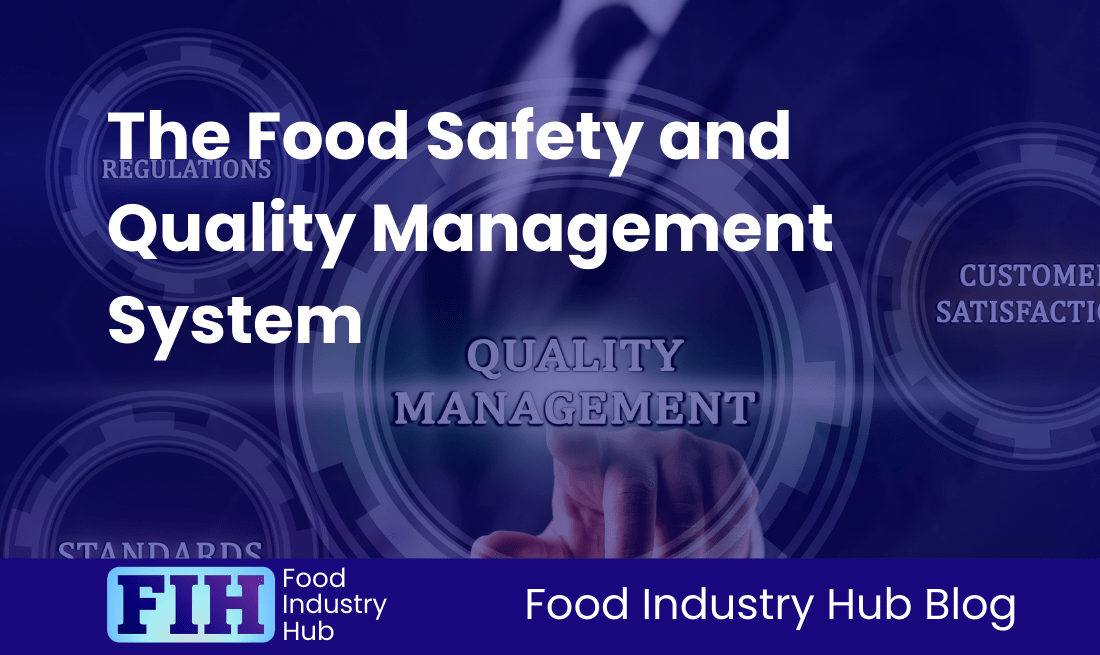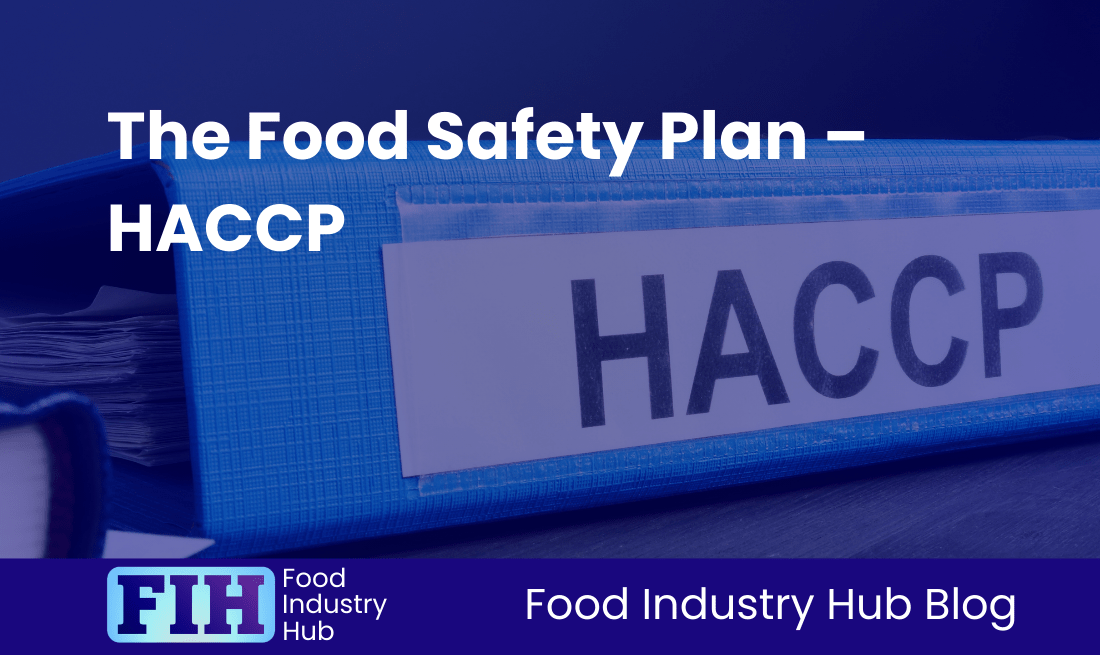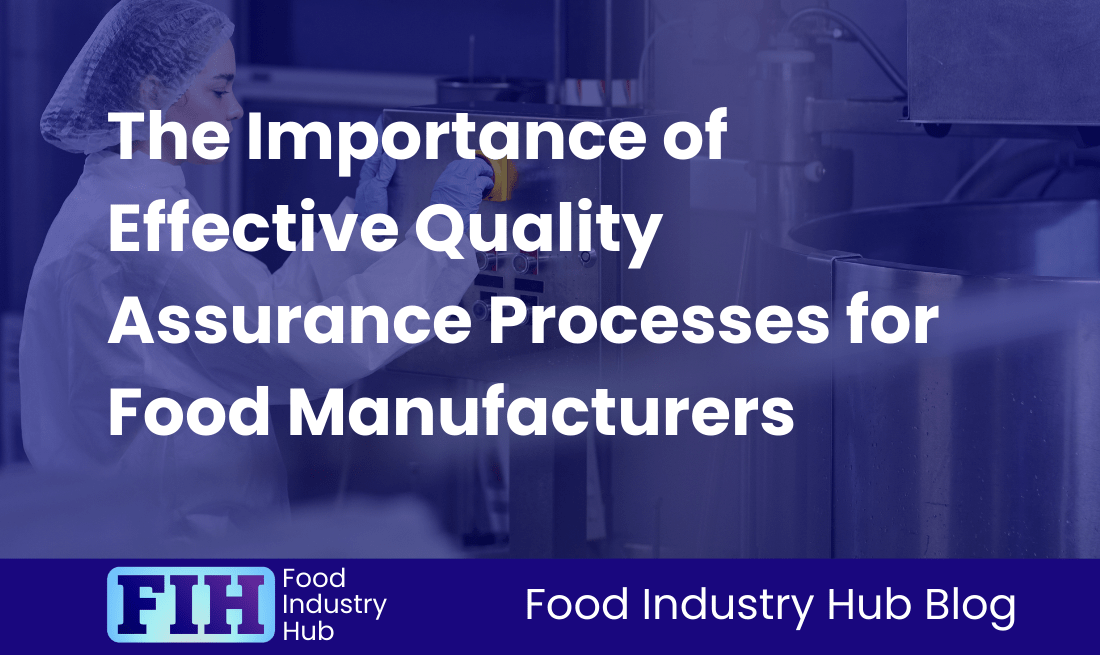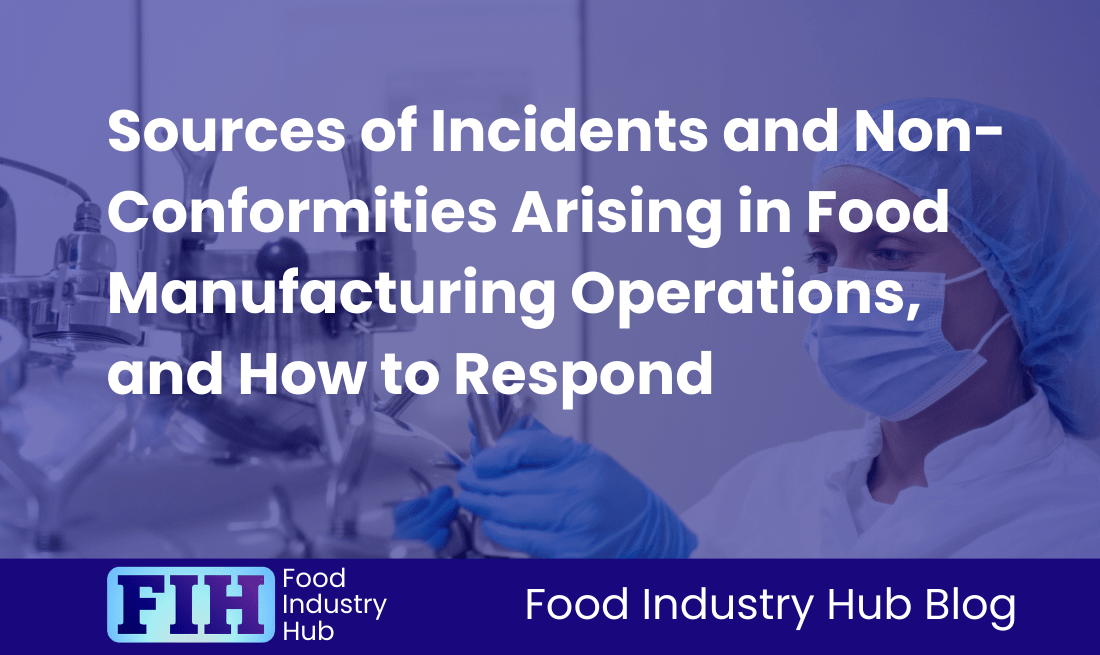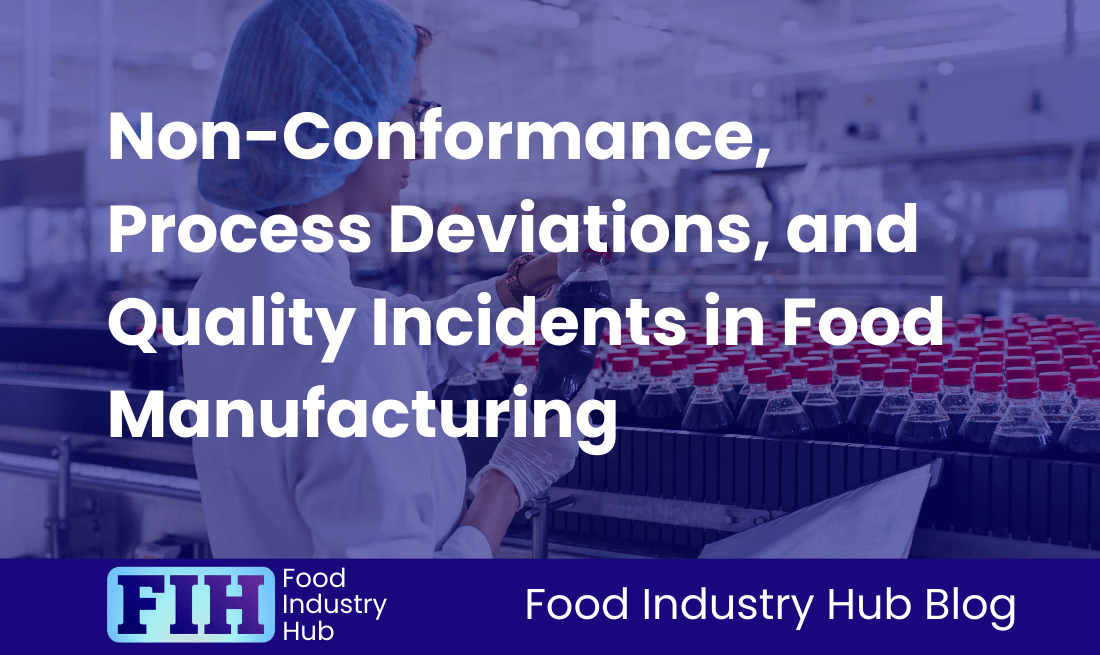Know: Total Quality Management (TQM)
Introduction
In the food manufacturing sector, quality is vitally important for achieving lasting success. This industry is one where high standards are not merely preferred but necessary. Ensuring food safety and quality is not just an option – it’s a requirement. By adhering strictly to quality standards, we can reinforce customer trust, align with regulations, and secure the longevity of businesses in the field. With new challenges in the areas of safety, legality, and authenticity continuously emerging, the establishment of solid quality management practices is growing in importance.
Understanding Total Quality Management (TQM)
As a comprehensive means to improve quality across an organisation, Total Quality Management (TQM) ensures that food products align with customer demands and regulatory mandates. The primary goals of TQM include securing food safety and quality through stringent systems aiming at the reduction of defects and sustainment of optimal manufacturing standards. Through its emphasis on continual improvement, TQM persuades every employee to strive for quality. This makes it an essential instrument for organisations looking to improve operational effectiveness while supplying safe food products to consumers.
Importance of TQM in Food Manufacturing
TQM can have a significant impact in the food manufacturing sector. It directly addresses factors like food safety, legality, authenticity, and regulatory adherence. Through its structured approach…
- Food Safety is secured by thorough quality controls that help mitigate contamination and assure that products meet health benchmarks.
- Legality and Authenticity are preserved as TQM procedures align with sector regulations. This helps manufacturers deal with the intricacies of compliance effectively.
- Consistent adherence to regulatory standards confirms that businesses meet legislative prerequisites, thus circumventing potential legal penalties and establishing a trustworthy reputation in the market.
Main Themes
In this article, we’ll discuss several significant themes within TQM as it’s applied to food manufacturing:
- Foundations of TQM explores the underlying philosophies and principles that steer successful implementations.
- Regulatory Compliance and Global Standards discusses the need to sync TQM practices with international regulations for maintaining food safety and integrity.
- Operational Efficiency and Process Optimisation examines methods to boost productivity and lessen waste through TQM principles.
- Technological Integration in TQM reflects on how technological innovations can support quality management plans, rendering processes more efficient and trustworthy.
- Last, Cultural & Organisational Aspects of TQM shines a spotlight on the role of leadership and employee engagement in creating a quality-focused organisational culture.
We aim to uncover the key role of TQM in navigating the complexities of the modern food manufacturing sector throughout this exploration, ensuring that quality, safety, and regulatory compliance remain a priority in industry practices.
Key Takeaways
The focus on customer needs in Total Quality Management (TQM) is instrumental in aligning organisational goals with consumer requirements, which in turn bolsters customer satisfaction and loyalty. By prioritising customer expectations, TQM ensures the production of safe, quality-assured products which directly tackle consumer safety concerns. This customer-centred approach affords businesses measurable competitive advantages in an otherwise bustling marketplace.
Pivotal Role of Continuous Improvement and Employee Involvement
In achieving a successful TQM framework, the roles of continuous improvement and staff participation cannot be overlooked. Organisations with a culture of ceaseless improvement have proven to be more resilient in adjusting to shifting market demands, hence maintaining competitiveness. Staff involvement is integral in this process as their unique insights often bring about improvements that boost the effectiveness of TQM endeavours. Empowering employees with the necessary training and resources allows them to actively contribute to identifying enhancement opportunities, reinforcing a common devotion to quality management across the company.
TQM and Assurance Standards: ISO 9001 and HACCP
TQM practices blend well with regulatory norms like ISO 9001 and the HACCP strategy. The ISO 9001 framework, which emphasises customer satisfaction and continuous improvement, aligns impeccably with TQM principles, ensuring that quality management norms are upheld. Also, the incorporation of HACCP principles into TQM strengthens food safety processes, allowing companies to pinpoint and manage hazards effectively. This ensures adherence to health regulations while boosting overall safety confirmation.
Efficiency and Optimisation Benefits from TQM Implementation
TQM implementation reaps significant rewards in operational efficiency and process optimisation. With its spotlight on customer needs and its quest for continuous improvement, TQM can streamline procedures, decrease waste and optimise efficiency. The resultant waste reduction leads to cost-effectiveness by lowering operational expenses while preserving high product quality standards. The efficiency culture advocated by TQM additionally spurs heightened productivity and drive competitiveness within the industry.
Technology Integration within TQM Frameworks
The amalgamation of technology within TQM structures presents several benefits, including improved traceability and streamlined compliance management. Employing technologies such as IoT and data analytics allows real-time monitoring of manufacturing processes, enabling organisations to react promptly to quality variations. Automated compliance management simplifies the process of adhering to compliance requirements, thus minimising the risk of non-compliance. The advanced technology adoption in TQM not only promotes food safety and traceability but also reinforces the organisation’s dedication to quality assurance in a heavily regulated landscape.
Food Industry Hub Management Systems can significantly boost the effectiveness of your food safety and quality management system, leading to improved confidence and elevated quality assurance throughout your operations.
Foundations of Total Quality Management (TQM)
Total Quality Management, or TQM, is essentially a comprehensive strategy that concentrates on upholding a commitment to quality throughout an organisation. It emphasises customer satisfaction, continuous improvement, and significant employee involvement. In the context of the food manufacturing industry, TQM incorporates quality control in every step of the production process. This extensive scope ranges from the sourcing of the raw materials to the final delivery of the product to ensure compliance with safety rules and regulatory standards established by authorities like the FDA and ISO 22000.
Customer-Focused Philosophy
A fundamental part of TQM is the customer-oriented philosophy, deeply concerned with fulfilling consumer expectations related to safety and quality. This perspective necessitates that food manufacturers enforce high quality standards in all phases of production, thereby enhancing product transparency and consumer trust. Strict food safety measures, including Hazard Analysis and Critical Control Points (HACCP), support these standards to limit the risks tied to foodborne illnesses [Source: PMC]. Impactfully collecting and integrating customer feedback allows food manufacturers to better mould their procedures to consumer needs, leading to improved satisfaction and fewer product recalls [Source: Agriculture Institute].
Continuous Improvement Methodologies: The PDCA Cycle
The PDCA (Plan-Do-Check-Act) cycle forms a basic method for encouraging continual improvements within a TQM setting. In the Plan phase, organisations identify gaps in quality, such as inconsistencies in the product’s shelf life. During the Do phase, minor changes are put into effect, such as incorporating updated sanitation protocols or tweaking equipment settings. The Check phase employs metrics and audits to assess the results of these adjustments. Lastly, in the Act phase, successful strategies are applied uniformly across production facilities. This repetitive process enables food manufacturers to promptly adapt to consumer demand shifts and regulatory modifications, upholding consistent operational efficiency.
Employee Empowerment
A thriving TQM culture is strongly tied to the concept of employee empowerment. Offering training to frontline workers in not only quality assurance, but also problem-solving, develops a sense of responsibility and accountability. To specify, in food processing facilities, employees are urged to report any deviations from hygiene standards, effectively lowering contamination risks. This empowerment is further emphasised through open communication paths and continuous training initiatives, fortifying the organisation’s devotion to quality.
Compatibility with GAP and GMP
TQM aligns seamlessly with frameworks like Good Agricultural Practices (GAP) and Good Manufacturing Practices (GMP). By merging TQM principles with GAP, food manufacturers can ensure that agricultural procedures endorse sustainability, minimise pesticide residues and ensure high-quality raw materials. The collaboration with GMP focuses on preserving hygienic conditions and implementing standardised processes to deter microbial contamination, enhancing food safety across the supply chain.
Preventive Risk Management
Adopting a preventive approach to risk management is integral within TQM, particularly in upholding food safety. By applying predictive analytics and enforcing rigorous risk assessment processes, food manufacturers can proactively identify and manage potential hazards rather than solely reacting to incidents after they occur. Techniques like Failure Mode and Effects Analysis (FMEA) and real-time monitoring systems are crucial in pinpointing critical control points and bettering processes to prevent contamination, thus complying with the preventive controls specified in the Food Safety Modernization Act (FSMA).
Bringing together these foundational components of TQM enables food manufacturers to ameliorate product safety and quality while creating a durable shield against changing regulatory environments and consumer expectations.
Regulatory Compliance and Global Standards
The Application of TQM in fulfilling FSMA (Food Safety Modernization Act) Requirements
The role of Total Quality Management (TQM) in implementing the Food Safety Modernization Act (FSMA) is substantial. FSMA represents a shift from traditional reactive food safety practices to more preventative strategies. This Act instructs food manufacturers to adopt Hazard Analysis and Risk-Based Preventive Controls (HARPC), a process that greatly benefits from the TQM’s emphasis on continuous improvement and process control. FSMA guidelines require preventative controls to mitigate food safety hazards at all stages of the food supply chain. By incorporating TQM principles, an effective food safety and compliance culture can be developed. In addition, heightening employee training resonates with FSMA’s requirement for a “qualified individual” to supervise food safety practices, an essential part of applying TQM effectively. [Source: FDA]
Harmonising TQM Practices with BRCGS Standards
Blending TQM practices with the Brand Reputation through Compliance Global Standard (BRCGS) supports compliance with food safety, legality, and quality standards. BRCGS underlines the need for thorough Quality Management Systems (QMS) that incorporate well-organised documentation, employee involvement, and audit readiness. TQM bolsters these necessities by endorsing an environment of continuous betterment encompassing systematic evaluations and feedback mechanisms. Importantly, the enforcement of HACCP principles aligns with TQM’s preventive focus, enabling effective hazard management and product quality consistency throughout the supply chain [Source: BRCGS].
Interplay between TQM and International Featured Standards (IFS)
International Featured Standards (IFS) establish ambitious criteria for evaluating food safety and quality management. TQM practices support adherence to IFS requisites by promoting a culture dedicated to quality and safety. By incorporating TQM, organisations can standardise processes and comply with crucial IFS principles, such as comprehensive documentation and stringent process controls. Additionally, continuous employee development under TQM ensures familiarity with quality assurance methodologies vital to IFS compliance, thereby reducing audit findings and promoting effective risk management.
The Impact of TQM on Securing and Retaining Halal and Kosher Certifications
Gaining and preserving Halal and Kosher certifications, which demand strict compliance to specific dietary practices, is facilitated by TQM. Compliance is assured through rigorous quality control processes, regular audits, and complete documentation of ingredient sourcing and product processing. The utilisation of training programmes intrinsic to TQM allows employees to comprehend and implement the required practices for upholding Halal and Kosher integrity in food production. Such a structured approach simplifies the certification process and verifies adherence to religious standards and practices anticipated within these markets.
The Significance of Harmony between TQM Practices and Global Trade Regulations
In the international arena, synchronising TQM practices with worldwide trade regulations is essential for food manufacturers. Compliance with standards set by the World Trade Organization (WTO) and the European Union’s General Food Law ensures that products meet the necessary safety and quality benchmarks. TQM, with its emphasis on continuous quality management, allows firms to remain compliant, thereby improving operational performance and brand reputation. Businesses that successfully integrate TQM with global standards not only meet varied regulatory landscapes, but also competitively position themselves on the international platform by showcasing a robust commitment to quality and safety across their operations.
Sign-up for the Food Industry Hub Mail Service
We regularly produce new content for food industry professionals, and the Food Industry Hub Mail Service is the best way to stay up to date with the latest additions.
Signup today to be added to the Food Industry Hub mailing list.
Operational Efficiency and Process Optimisation
The integration of Lean Manufacturing principles and a Total Quality Management (TQM) framework is key to improving operational efficiency and reducing wastage in the food manufacturing sector. Lean’s focus on waste elimination and value maximisation meshes well with TQM’s commitment to continuous improvement. Some notable strategies for this combination include:
- Value Stream Mapping (VSM), a method used to pinpoint and remove non-value-adding activities. This is especially relevant to food production where it can streamline processes, such as inventory management and production scheduling — key aspects for perishable goods.
- Implementing the 5S methodology (Sort, Set in Order, Shine, Standardise, and Sustain) is pivotal in arranging workspaces to minimise the risk of contamination and increase productivity — indispensable aspects in maintaining hygiene in food production facilities.
- Promoting Employee Engagement by creating a culture where team members at all levels can contribute to spotting inefficiencies and providing solution suggestions. Research indicates that encouraging this type of environment can create substantial performance improvements across the organisation.
Supplier Quality Management
Supplier Quality Management (SQM) is a key component within a TQM framework, as it ensures that raw materials meet the necessary quality standards. Effective implementation comprises several strategies:
- Forming performance-based partnerships with suppliers to define quality metrics and ongoing improvement initiatives. This alignment helps the food manufacturer and supplier to work towards common goals.
- Regular audits to assess suppliers according to high-quality standards and industry regulations, ensuring transparency in the quality of incoming materials.
- Communication and training are key to keeping suppliers up-to-date with changing quality demands and effective responses, thereby lowering material variability and enhancing compliance with food safety regulations.
Statistical Process Control (SPC)
Statistical Process Control (SPC) is an essential tool for real-time monitoring and quality assurance in food manufacturing. With the help of control charts and data analysis tools, SPC enables manufacturers to:
- Monitor Quality Parameters: Tracking key points, such as cooking temperatures and pH levels, guarantees that any difference from quality standards is speedily addressed, thus averting defects [Source: MDPI].
- Implement Corrective Actions: Analysis of deviation trends allows manufacturers to pre-emptively spot issues, ensuring consistent quality and reducing waste.
- Improve Process Enhancement: SPC encourages data-driven decision-making, allowing teams to make based on solid evidence adjustments—leading to overall operational efficiency enhancement.
Root Cause Analysis and Corrective Actions
Performing a comprehensive Root Cause Analysis (RCA) is a key part of TQM to tackle quality issues. Implementation techniques include:
- Use of Fishbone Diagrams and the 5 Whys to systematically establish the root causes of defects, whether they stem from processes, equipment, or human factors.
- Collaboration across functions is pivotal, as a diverse team involved in problem-solving can generate inventive solutions and targeted corrective actions that are sustainable in the long run.
- Ongoing monitoring and feedback systems to ensure corrective actions are effective and that processes maintain alignment with quality objectives, thus reinforcing a culture of continuous improvement.
Energy Efficiency and Sustainability Practices
TQM strategies promoting energy efficiency and sustainability in food manufacturing include:
- Carrying out regular Energy Audits: Comprehensive reviews of energy use across various processes can spotlight inefficiencies and direct resource conservation efforts.
- Adoption of Sustainable Practices: The integration of renewable energy sources, combined with reducing water and material waste, can make a significant impact on overall sustainability and compliance with environmental regulations.
- Promotion of Employee Engagement: Encouraging a culture where employees suggest energy-saving measures can lead to innovation that aligns with TQM’s goals of continuous improvement while promoting sustainable manufacturing practices.
By effectively combining Lean principles with TQM’s overarching approach to quality and efficiency, food manufacturers can increase their operational agility while maintaining safety and quality standards.
Technological Integration in TQM
Digital Quality Management Systems (QMS) for Advanced Compliance Management
Digital Quality Management Systems (QMS) are transforming compliance management in the food manufacturing industry. These systems standardise key processes such as audit management, compliance tracking, risk assessment, and supplier quality reviews, all in one place. They facilitate real-time data collection and analysis, necessary for meeting assurance scheme requirements like IFS, FSSC 22000, and BRCGS. The use of regulatory intelligence tools, which automatically update compliance requirements across different jurisdictions, help organisations stay adaptable in a changing regulatory environment.
AI-Powered Predictive Analytics in Proactive Maintenance and Risk Management
Artificial Intelligence (AI) and machine learning technologies hold significant importance in the food industry, particularly in enhancing proactive maintenance and risk management protocols. These technologies employ historical and real-time data to predict equipment failures and alert food safety issues linked to storage conditions or microbial levels. The capability of AI algorithms to anticipate potential equipment malfunctions ensures manufacturers can tackle risks proactively.
Deployment of IoT Sensors for Real-Time Surveillance and HACCP Principles
The incorporation of Internet of Things (IoT) sensors into food manufacturing processes enables continuous monitoring of parameters such as temperature, humidity, and operational conditions. These devices offer real-time data that is invaluable for adhering to Hazard Analysis and Critical Control Points (HACCP) principles, which are key in averting food safety concerns. IoT sensors’ ability to automatically alert teams when parameters exceed preset limits facilitates timely corrective action, thereby supporting product safety and quality.
Automated Reporting Systems for Reduced Administrative Burden in Audits and Inspections
The advent of automated reporting systems is a leap forward for food manufacturers, substantially reducing the administrative burden associated with compliance audits and inspections. These systems automate data collection and reporting processes, thereby enhancing compliance documentation’s accuracy and efficiency. With instant access to important quality records and the ability to generate reports in real time, these systems enable manufacturers to concentrate more on operational aspects, ensuring readiness for inspections. Furthermore, these systems can drastically lower manual documentation efforts, potentially reducing resource allocation by up to 80%, which proves particularly beneficial during unannounced audits [Source: Food Safety Tech].
The amalgamation of such technologies including digital QMS, AI-powered analytics, blockchain, IoT sensors, and automated reporting systems, strengthens Total Quality Management (TQM) frameworks in the food manufacturing sector, reinforcing compliance, quality assurance, and operational efficiency.
Cultural & Organisational Aspects of TQM
Leadership Determination in Establishing Quality Culture
Having leaders who are dedicated to bringing about a quality culture is essential for food manufacturing organisations. Effective leaders must keep quality as a focal point in their strategic objectives, nurturing an environment where quality management blends seamlessly into every aspect of operations. This commitment is realised through the setting of quality benchmarks congruent with industry standards – living up to the expectations of assurance standards like BRCGS, IFS, and FSSC 22000. Consistent and visible leadership presence helps articulate quality standards and strengthens accountability throughout the organisation. This approach greatly amplifies adherence to safety standards. Organisations with influential leaders in TQM structures display better compliance rates, and fewer incidents of food safety, thus boosting consumer trust and operational reliability.
Cross-Functional Teams
Cross-functional teams aid in the advancement of Total Quality Management (TQM) practices by integrating divergent perspectives from various departments such as research and development (R&D), production, and quality assurance. Within the food manufacturing industry, these teams facilitate a comprehensive approach to complex problem-solving challenges, be it allergen management or compliance with regulatory updates. Collective efforts enable the detection of quality issues and stimulate innovative solutions. For instance, the collaborative efforts between technologists and production workers could result in enhanced procedures for sanitation and packaging, contributing to compliance with regulations and assurance standards.
Insight into Kaizen Philosophy
The Kaizen philosophy, that underlines continuous improvement through incremental changes, is a centrepiece in Total Quality Management (TQM). As the necessity to maintain high safety standards is essential, incentivising employees to infuse small, everyday improvements can considerably enhance product quality and operational efficiencies. Initiatives such as Gemba walks — where managers observe daily operations — facilitate the swift identification of inefficiencies and safety risks, engendering notable improvements.
Designing Training Programmes to Engage Employees
Designing training programmes dedicated to Total Quality Management (TQM) is useful in enhancing employee involvement and improving understanding of core food safety practices. All-embracing training could involve workshops that focus on HACCP compliance, hygiene best practices, and methodologies for conducting root cause analysis. Progressive methods, such as learning through simulations or gamification, often result in higher retention of knowledge, especially for frontline workers who play a key role in maintaining quality standards. Programmes that focus on guiding potential leaders in TQM fundamentals also establish a baseline to carry forward a culture centred on quality throughout the organisation.
Importance of Employee Recognition and Reward Systems
Recognition and reward systems for employees play a significant role in enhancing the effectiveness of TQM initiatives. When the efforts and contributions of workers towards quality improvements and adherence to safety procedures are recognised, it fortifies a quality-committed culture. Recognition can take various forms, from performance bonuses tied to specific quality parameters to accolades for innovative process enhancements. Motivational interventions like these not only boost morale but also aligns individual employee objectives with the broader TQM framework, cementing a collective responsibility for maintaining elevated food safety and quality standards.
By underlining leadership determination, encouraging cross-functional collaboration, adopting the Kaizen philosophy, implementing effective training, and establishing recognition systems, food manufacturing organisations can cultivate a sturdy culture of quality that forms the bedrock of successful TQM practices. This comprehensive approach ensures an all-round employee engagement in quality management efforts, leading to enhanced food safety, compliance, and customer satisfaction.
Considerations by Region
UK Food Manufacturing Sector
In the UK, Total Quality Management (TQM) is key for complying with the robust trust and food safety regulations that consumers demand. The Food Safety Act 1990 demands businesses in the food sector to uphold high safety standards and urges them to implement preventive measures and efficient traceability systems. The Food Standards Agency (FSA) closely watches over these safety measures and enforces local regulations, facilitates accurate labelling, and promotes effective contamination prevention practices. The historical British Standard BS 5750, a pioneer to ISO 9001, backed the foundation for TQM, propelling systematic hazard control and compliance through well-documented processes. Mandatory integration of HACCP (Hazard Analysis and Critical Control Points) ensures food manufacturers systematically pinpoint hazards and manage critical control points, in line with TQM principles that concentrate on proactive quality management.
EU Market
Within the European Union, TQM practices have been shaped primarily by rigorous standards that focus on food safety and quality compliance. The General Food Law Regulation (EC) No. 178/2002 ensures that traceability is enforced and a precautionary rule for managing risks is adopted, hence making sure that businesses in the food sector utilise TQM systems that display thorough due diligence in all their operations. The Hygiene Package (EC No 852/2004) demands the implementation of HACCP, which is integral for TQM in ensuring systematic hazard control across food production processes [Source: EUR-Lex]. TQM practice, in this context, is accommodative to a broader scope of sustainability objectives inherent in the EU’s Green Deal, with an emphasis on waste reduction and environmental responsibility in quality management practices.
USA Food Manufacturing
In the United States, TQM is interwoven with the compliance requirements stipulated by the Food and Drug Administration (FDA), particularly under the Food Safety Modernization Act (FSMA). This law underlines preventive control measures, which are congruent with TQM principles that focus on proactive quality assurance in managing food safety. The FSMA, along with the associated Food Code, propels the creation of robust TQM systems that include in-depth hazard assessments and documented control actions at essential points within the production process. Successful compliance demands third-party audits under widely accepted standards like SQF and BRCGS, guaranteeing that firms uphold quality assurance frameworks throughout their operations.
Global Markets and Universal Food Safety Frameworks
On a worldwide scope, TQM assumes an instrumental role in harmonising food safety measures across assorted markets. The Codex Alimentarius Commission sets up esteemed food safety standards that many countries utilise, allowing food manufacturers to align their practices with globally accepted guidelines. This adherence builds trust among consumers in the safety and quality of food products, regardless of geographical boundaries.
Regional Adaptations
Adapting TQM methodologies to uphold various market needs, such as fulfilling halal or kosher certifications, demands careful compliance with cultural and religious dietary rules. Integrating halal practices drives robust requirements regarding sourced ingredients, slaughtering, and processing, all of which need thorough documentation within the overarching quality management system. Kosher certification also demands stringent adherence to specific practices during food processing, thereby greatly influencing the TQM framework in the food industry. These adaptations are needed to meet customer expectations and maintain brand integrity across diverse markets.
Successful execution of TQM in the food manufacturing sector rests on a thorough understanding of local regulations, cultural considerations, and specific market requirements – key factors that lead to enhanced compliance and consumer trust in food safety and quality standards.
Conclusion
In the food manufacturing industry, the value of Total Quality Management (TQM) is significantly recognised when handling the areas of food safety, quality, legality, and authenticity. This strategy embraces five mighty pillars indispensable to securing superlative accomplishments in food production, which are: Foundations of TQM, Regulatory Compliance and Global Standards, Operational Efficiency and Process Optimisation, Technological Integration in TQM, and Cultural & Organisational Aspects of TQM.
Foundations of TQM
TQM’s fundamental principles, structured under the Foundations of TQM, promote a comprehensive approach to quality management. This approach is anchored on a sustained process of refinement and customer satisfaction. It solicits the active involvement of every employee in cultivating an environment that value quality highly. This emphasis minimises flaws and secures steadfast compliance with safety protocols. Consequently, this proactive approach considerably lowers the risk of foodborne illnesses and heightens consumer trust within the food manufacturing sector.
Regulatory Compliance and Global Standards
In the context of Regulatory Compliance and Global Standards, TQM enables food manufacturers to adeptly manoeuvre complex regulatory frameworks. These include systems like BRCGS, IFS, FSSC 22000, FDA guidelines, and ISO standards. Upholding these regulations is imperative not solely for legal compliance but for building consumer trust in product safety and quality as well. Having robust documentation and process regulation structures cultivates a culture of transparency and accountability. This culture is key in preserving food authenticity.
Operational Efficiency and Process Optimization
Under the guiding principle of Operational Efficiency and Process Optimisation, the output of food manufacturing workflows is invariably enhanced. TQM encourages the use of proven methodologies like Lean Manufacturing and the PDCA (Plan-Do-Check-Act) cycle. These methodologies enable organisations to standardise and enhance their processes, creating a substantial decrease in wastage. They also ensure effective resource utilisation leading to noticeable improvements in cost-efficiency.
Technological Integration in TQM
The incorporation of sophisticated systems such as digital quality management solutions and IoT applications offers a significant edge when it comes to Technological Integration in TQM. These technologies help bolster the real-time monitoring and managing of quality standards. As a result, they afford not only an increase in operational precision, but also improve traceability across the supply chain. Ensuring compliance with safety regulations becomes simpler and consumer trust is enhanced.
Cultural & Organisational Aspects of TQM
Lastly, focusing on the Cultural & Organisational Aspects of TQM amplifies the necessity of establishing a culture that favours quality within food manufacturing organisations. Motivating participation from employees at all levels encourages a mindset of ownership and accountability. This attitude is key in maintaining high standards in production processes. The resulting commitment ultimately strengthens customer loyalty, as customers tend to trust brands that demonstrably value quality and sustainability.
Embedding TQM into operational approaches enables food manufacturers to proficiently traverse regulatory obligations, stimulate sustainable operational efficiencies, and remain attuned to technological and cultural shifts. This comprehensive approach not only guards product integrity, but also favourably positions organisations for long-term prosperity within a fiercely competitive global food marketplace.
About The Food Industry Hub Knowledge Centre
The Food Industry Hub knowledge centre delivers informative content on a variety of topics pertinent to the food manufacturing industry.
You can return to all topics by clicking here.
From The Food Industry Hub Blog
Expanding on this topic with related content from our blog.

